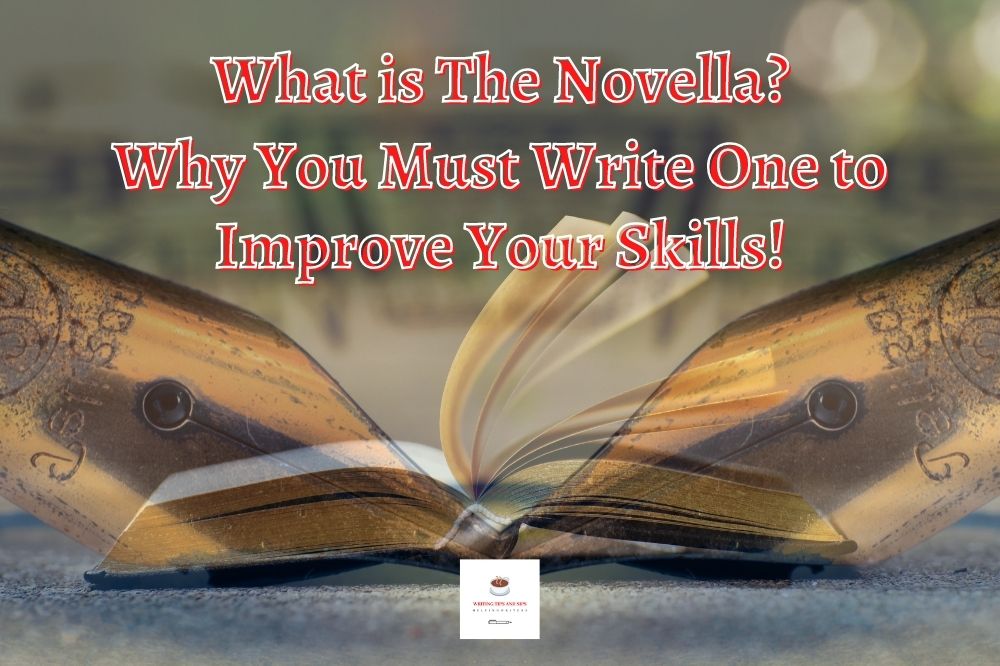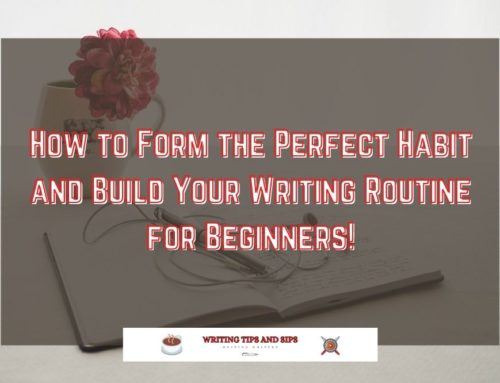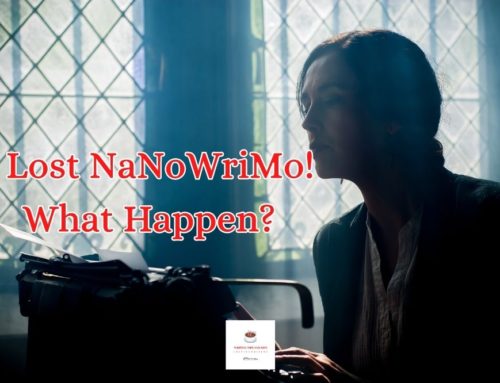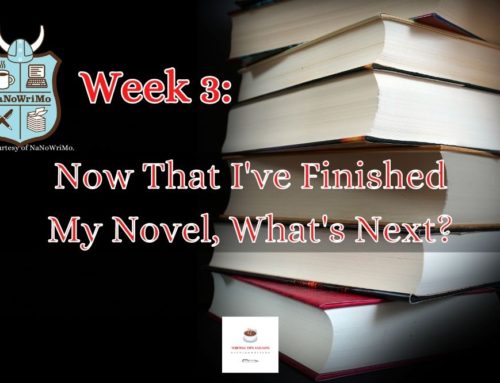*Disclaimer: This post contains affiliate links, meaning if you click on a link and make a purchase, I may get a small compensation. The opinions expressed are mine alone*
Hello Writing Friends,
It’s been a while since I have last written a tip for you guys, and for that, I am sorry. The truth is last quarter was a doozy. I took two simultaneous classes and had trouble keeping up with my classwork, homework, and this blog. I decided it would be best if I paused Writing Tips and Sips to better focus on what I was learning. The plus side: I get to bring you better content now that I am back.
Last quarter I took a class on screenwriting and writing novellas. Though you know which one I want to focus on today, assuming you read the title of this article.
That said, I will post an article about how screenwriting can improve your fiction writing in the near future.
Writing the Novella—my most challenging class last quarter opened me up to a completely different writing genre. The novella has the strength of a short story. It focuses on only the essential details, and it has the time to develop your cast of characters fully.
What is a novella? Before this class, I would have joked it was a Spanish tv drama that my parents-in-law love to watch. However, I see now that the novella is a challenging and unique genre in storytelling. It is a genre that blurs the line between the short story and the novel—often begging the question: is the narrative a long short story or a short novel? I question: why not both?
What Defines a Novella?

As Ian McEwan states, the novella is a story that can be read within one or two sitting and stay within the mind of the reader. It’s theatrical, establishes characters in quick strokes, and sticks to one or two side plots. This definition was used when talking about novellas in class, and it is the one this article is based on today.
Novellas are short enough to be read within one or two sittings and often take around the same length as a movie to finish. Novels can also be finished in a single day if you pour every hour into a good book. Still, this genre is designed for the average reader to be able to finish easily while having the ability for the world to stick in the reader’s head if they need to walk away for a bit.
The average word count is somewhere between 15,000 and 40,000 words. Not long enough to be considered a novel and too long to be a short story. That said, the length gives the writer room for precision when writing their narrative. There isn’t room to waste space; every word is essential to the narrative.
The precision necessary for writing a novella lends theatricality to the narrative. In my experience in reading novellas, they have a strong sense of cinematic action. One of my favorites I read in class was George R.R. Martin’s “The Hedge Knight.” In this Novella, we follow Dunk as he tries to prove himself an honorable knight. The scenes play out in a fashion that makes sense to the narrative and has a theatrical element.
An Example of Theatricality:
 One scene from The Hedge Knight viscerally shows the cinematic nature of the novella. “At the last possible instant, Ser Humfrey’s stallion reared away from the oncoming point, eyes rolling in terror, but too late. Aerion’s lance took the animal just above the armor that protected his breastbone and exploded out of the back of the neck in a gout of blood. Screaming, the horse crashed sideways, knocking the wooden barrier to pieces as he fell” (66).
One scene from The Hedge Knight viscerally shows the cinematic nature of the novella. “At the last possible instant, Ser Humfrey’s stallion reared away from the oncoming point, eyes rolling in terror, but too late. Aerion’s lance took the animal just above the armor that protected his breastbone and exploded out of the back of the neck in a gout of blood. Screaming, the horse crashed sideways, knocking the wooden barrier to pieces as he fell” (66).
In this scene, you can clearly see the way it would be filmed. Starting with a wide shot of the two horses charging toward one another, followed by a close-up on Ser Humfrey as he realizes what is about to happen. His grip would tighten on the reigns as he tries to avoid the inevitable. Cut to a medium shot of the lance piercing the stallion or, depending on the rating the movie was going for, cut to the shadow of the violent action.
Martin brings this scene to life with his pacing and word choice, and it paints a clear picture in the reader’s mind. That is the goal of the novella. You don’t want to waste words and make sure every choice is in the spirit of painting the perfect picture.
My Thoughts on the Novella

With McEwan’s definition, I think of the novella as a story around 20000 words that stick with you. It’s generally able to be read in a single sitting. Still, the world, characters, and events make you think about what the narrative is trying to say.
The Hedge Knight established a whole fantasy world with its own rules and systems. It had images that still make me wonder about how characters could act in their particular ways. (I’m looking at the polearm impaling the neck of the horse).
Novella’s are deep, allowing a writer to explore their themes in a way a short story cannot, and more concisely compared to a novel. Though I would argue, a novel allows one to explore the theme from multiple angles in a way a novella shouldn’t.
Novellas test an author’s capability and push them to get into the heart of the narrative they want to write. Short stories are too quick to establish a world and build multiple characters. Novels lend themselves to have dull moments that aren’t pushing the story further.
Don’t get me wrong. I love writing novels.
Novellas have an extra “oomph” that draws me in as a writer.
In Conclusion
The novella is a fascinating genre, and I highly recommend giving them a read and—if feeling up to it—a try. They are generally a rather quick read taking no more than a couple of days, and they open you up to more stories to engage in.
In my own novella, I’m hoping to explore the effect of trauma on a person’s development and how they can overcome their trauma through healing. I am a fantasy writer, so I intend to do this in a fantasy setting, with war being the backdrop driving character choice.
If interested in this novella, let me know in the comments below, and I’ll consider sharing pieces with you guys!
Now that we have reached the end of the article, I want to know what you think? What has your experience with the novella genre been like?
C. D. Baron
Latest posts by C. D. Baron (see all)
- What is The Novella? Why You Must Write One to Improve Your Skills! - 03/21/2021
- Wake Up! A Short Story (Work in Progress) - 02/07/2021
- My Top 5 Favorite Reads of All Time (So Far) - 01/24/2021





